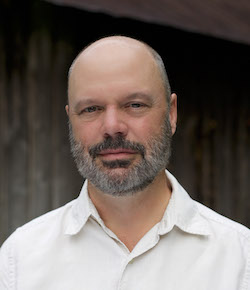
The Rapid Decline of Generous Hearts
I read an article online a few days ago and saw a word I’ve seen far too often lately: heresy.
It came from a large ministry accusing another large ministry of being non-Christian, even demonic. It was a respected leader who was so viscerally agenda-driven that his very selective use of scripture to support his point was almost laughable. Yet quite a few people take this kind of accusation seriously.
I know both groups and ministries in question, and both are solidly Christian. They have very different practices and perspectives, but they all love the Lord and are bearing fruit in truth. Though I see a little Pharisaism from one of the camps, no heresy is happening in either of them.
The “heresy” label has become very popular lately, both among the self-appointed watchdogs of our faith and ministry leaders with actual influence. And it tends to be thrown in many different directions.
It pops up on social media, it’s in book reviews, and it comes up in casual conversation. It applies to whole movements, minor publications, and even video clips or lines of songs that are purposely interpreted in the most unflattering ways possible.
I’ve even been called a heretic once or twice online for things I’ve written in my books — if you write enough words, some folks are eventually going to find some things to criticize — even though I’m unassailably, middle-of-the-road orthodox on the core beliefs of our faith.
And that’s the problem. Some people have applied the term heresy to issues that are not at all the core beliefs of our faith. Somewhere along the way, “I disagree with you” turned into “You’re a heretic,” even on relatively minor issues. Their narrow focus has made minor issues look major.
A Brief Lesson in Heresy
In the formative years (centuries) of Christian orthodoxy, leaders of the church held councils to debate and decide controversial doctrinal issues. The council in Jerusalem in Acts 15 was the first.
The first Council of Nicea in 321 was a big one; so was the Council of Chalcedon in 451. They were among seven widely accepted “ecumenical” councils (meaning they applied to the whole church, not just east or west) and are still often referred to today.
The issues decided by these councils (and, to be fair, many lower-profile debates) usually centered on the nature of a Trinitarian God (including the nature of Jesus) and the authority of scripture. In Acts 15 and later in the Protestant Reformation, the nature of salvation by grace through faith took center stage.
That means that for centuries, “heresy” generally applied to people or groups who fundamentally disagreed with established orthodox positions on (1) the nature of God as Trinity, (2) the authority of scripture (with much latitude for how to interpret it), and (3) the means of salvation. Hundreds of variations within these broad categories were considered within the realm of orthodoxy. Only the major contradictions to them — blatant denials of established orthodox doctrines on major issues — were considered heretical.
These would include the idea of Jesus being just a man or just a spirit, salvation coming through rebirth into other lives or escape from an evil material realm, and other issues of that level. Some heresies were more subtle, but they still had to violate the big doctrines to be considered heretical.
With some significant exceptions during the volatile years of the Reformation, differences in practices, how the Holy Spirit works, whether miracles have ceased or not, humanity’s role in the kingdom of God, appropriate forms of worship, and that sort of thing have usually been simply that — differences.
Now many people have a hard time accepting such differences in matters of faith. They think of “us” and “them,” and only one side can be right. And that, of course, would be “us.” The others are therefore heretics.
Why?
There have been times in history when indiscriminate charges of heresy increased in frequency, but generally the term is reserved for the biggest issues. So why has “heresy” been bandied about so freely in recent years? How did “I disagree with you” become “You’re a heretic” so easily?
My theory is that an extremely polarized political climate and the anonymity and rudeness of online communications have carried over into our other social interactions, infecting our relationships with other believers.
Unlike the Bereans who eagerly “examined the scriptures every day to see if what Paul said was true” (Acts 17:11), too many people now flip through the Bible with an agenda to prove someone else’s view is false. It’s not the same thing. At all.
Here’s my advice: Stop it.
(My wonderful readers probably don't need this advice, but at this point I’m preaching/venting to the larger Christian world.)
Before you call anyone a heretic, ask if they really, genuinely, blatantly contradict the most fundamental, core issues of our faith — the nature of God (including Jesus), the authority of scripture, and the nature of salvation — or if they just see or do things in ways you aren’t used to.
It might also help to ask if they are really, concretely, demonstrably teaching “another Jesus” or “another salvation” than those allowed by the biblical text, or if they are just emphasizing different verses from yours.
Every single theological background or denomination, without exception, emphasizes certain verses and minimizes others. When you read the Bible, you read through a certain lens and tend to notice only the things that fit that lens. That’s true for all of us. No one embraces scripture with a perfectly balanced and comprehensive perspective.
The question, then, is whether that “heretic” is just looking through another lens or is being clearly, patently, demonstrably anti-biblical on really big issues.
Not enough people ask that question today. Many do; I appreciate them and their ability to respect different points of view. But many do not, and their kneejerk accusations of heresy are harming the credibility of the church far more than variations in doctrine and practice do.
In fact, as important as doctrine can be, Jesus was quite clear that we will be known by our love, not by our doctrine.
For those wanting to root out destructive tendencies in the church, that’s a great place to start — and a far bigger issue than the “heresies” many people think they see.


